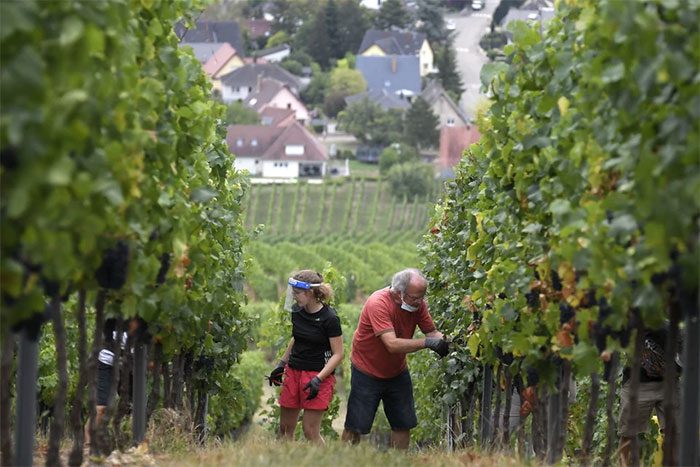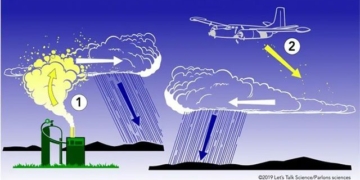Organic farming is often promoted as a more sustainable solution for food production, utilizing natural pest control methods to encourage environmentally friendly cultivation practices.

Farmers harvesting grapes in Alsace, France. (Photo: AFP/TTXVN).
However, a new study published in the journal Science on March 21 reveals that the expansion of organic farming land may lead to increased pesticide use on surrounding conventional fields, diminishing some environmental benefits.
Researchers found that these harmful “spillover effects” could be mitigated if organic farms are clustered together and geographically separated from conventional farms.
Ashley Larsen, a scientist at the University of California, the lead author of the study, stated that despite policies promoting organic agriculture, there are still critical knowledge gaps regarding the environmental impacts of organic farming.
To investigate, Larsen and her colleagues analyzed data from approximately 14,000 fields in Kern County, California, over seven years. This region is one of the most important agricultural production areas in the U.S., specializing in high-value crops such as grapes, watermelons, citrus fruits, tomatoes, potatoes, and many others.
The research team overlaid digitized maps of the fields and crops with records of pesticide use.
The results indicated that organic farming leads to an increase in pesticide use on conventional fields, but also significantly reduces the use of these chemicals on nearby organic fields. Pesticide usage on conventional fields gradually decreases the farther they are from organic fields.
However, the researchers discovered that this situation could be completely resolved if organic fields are clustered together.
The team concluded that clustering organic fields and spatially separating them from conventional fields could minimize the environmental impacts of both organic and conventional farming.
In a commentary, researcher Erik Lichtenberg from the University of Maryland noted that the authors pointed out that farmers’ decisions to use pesticides are influenced by the presence of nearby organic fields, though the underlying reasons remain unclear.
According to him, the value of the crops, the sensitivity of the crops to pests, and farmers’ personal risk tolerance may be significant influencing factors.
Lichtenberg emphasized the need for further research in this area to clarify the origins, occurrences, and behaviors of related pests and insects.




















































